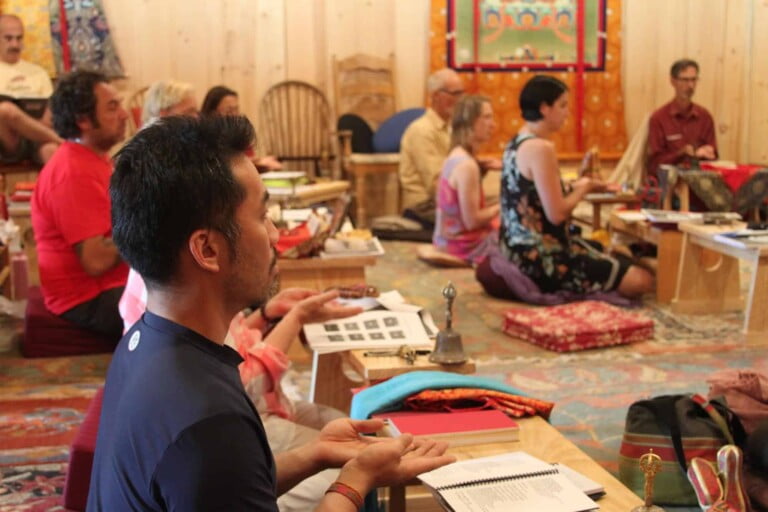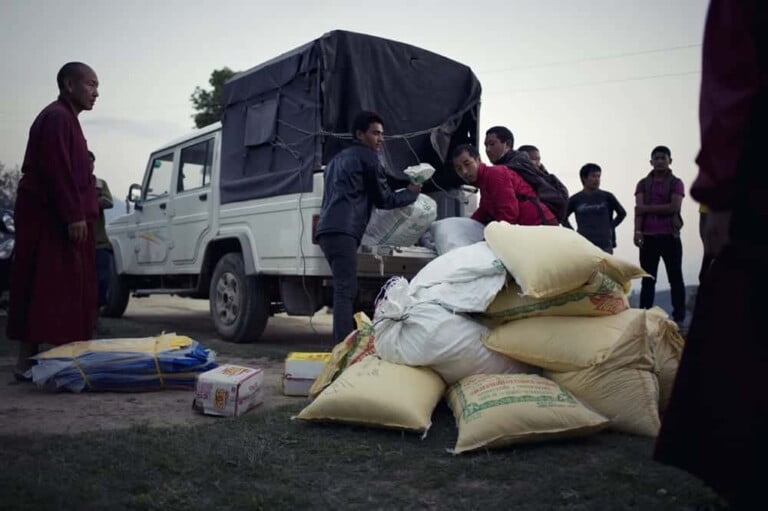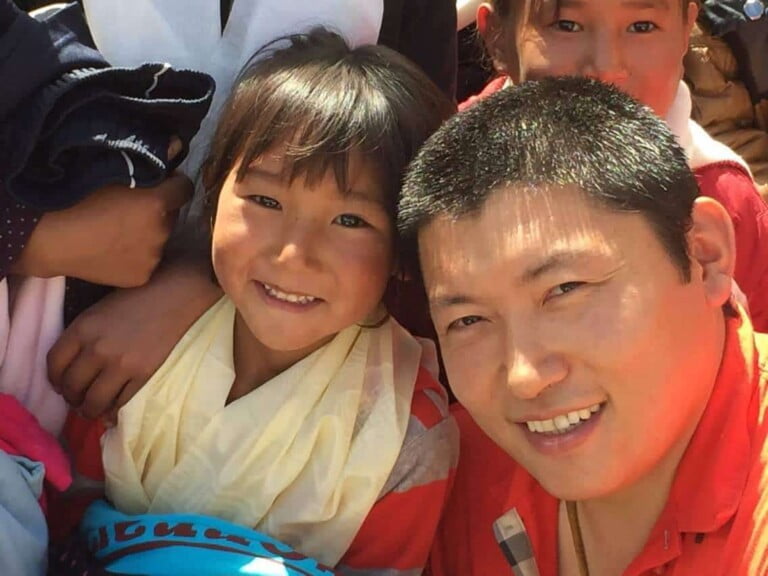Three Key Points For Lay Practitioners
Lay Practitioners: Competing Time Demands
We often request simple instructions for how to integrate practice with our busy modern lives. As lay practitioners, we have many demands on our time, and we can often feel frustrated or unsure of our priorities.
In this audio clip from August, 2015, Kyabgön Phakchok Rinpoche gives very direct and clear advice on this subject. Rinpoche teaches three key points to follow:
- Formal sitting reflection and meditation practice
- Doing something that benefits others
- Respecting and balancing your family life
Formal Sitting Practice
Rinpoche explains that formal sitting practice is necessary because it keeps us from forgetting our meditation. Can we call ourselves practitioners if we do not make the time for a daily formal practice? Sitting in a formal session for even a short period of time establishes a strong habit. This is a simple instruction that we can all appreciate.
Doing Beneficial Actions
Secondly, we can engage in “daily life practice”. When we benefit others directly in our daily activities our lives become meaningful. For example, Rinpoche often gives money to homeless people in the streets of New York City. Benefiting others like this is straightforward. We recognize a need and respond; that is a meaningful activity. We witnessed many examples of lay and monastic practitioners benefiting countless beings during the 2015 Nepal earthquakes.
We can also benefit beings who cannot speak for themselves by helping animals. Rinpoche and his sangha often practice life release– saving the lives of beings that would otherwise be killed. Sometimes it may also be easier for us to feel compassion for small, helpless creatures. We can observe that tendency and try to slowly grow the feeling and extend compassion in more situations.
Respecting and Balancing Family Life
Lastly, but very importantly, we remember our families. It is only right that we recognize and appreciate that commitment and responsibility. We should not make excuses, or avoid our obligations. Instead, we can practice mindfulness and be sure to balance our activities so that we respect our families. We can encourage our kids to ask questions and to “join” our practice by offering a flower or lighting a candle as an offering. And if they interrupt our formal practice, we can be gentle and loving rather than uptight and rigid.
Reflection Exercise
This week, take some time during your formal sessions and also at random times during your day to reflect on your sense of balance. Do you sense that you are giving equal attention to each of the three practices? Are some adjustments or corrections needed?
If so, how will you arrange your time and priorities differently during the coming week? What can you use as a helpful reminder in this practice? Does a family photo in a strategic location help?
Or, if you are lazy about sitting in formal sessions, have you tried setting a reminder chime to sit down and practice? What works in your situation?














Responses
This “reminding” is so helpful.
succinct and precise. Excellent!
Hand palm to palm and 3 prostrations <3